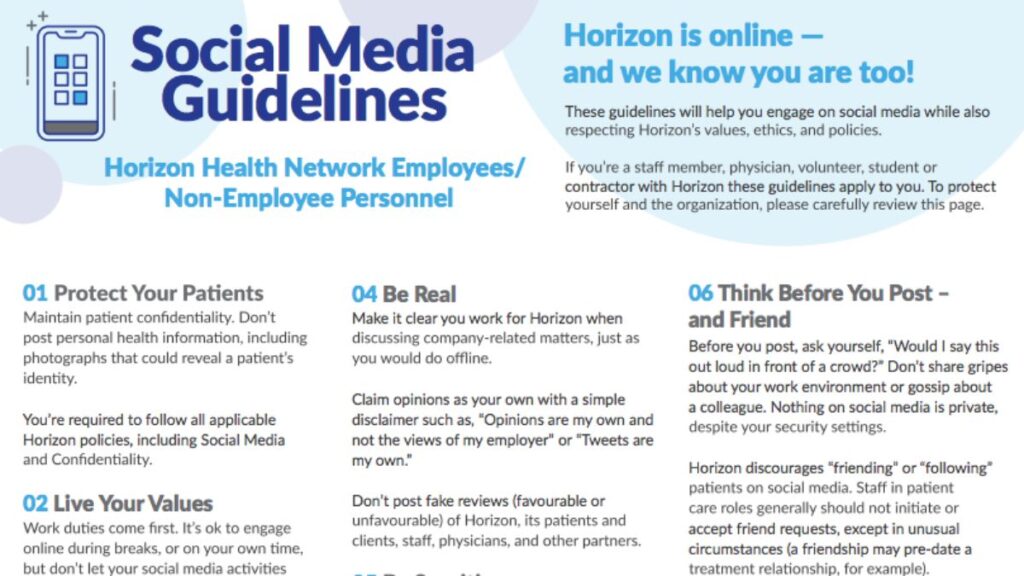In today’s digital-first world, the lines between personal and professional online presence have become increasingly blurred. With platforms like Twitter, LinkedIn, Instagram, TikTok, and Facebook becoming essential tools for communication and branding, businesses face both unprecedented opportunities and risks. Establishing a well-crafted social media policy is no longer optional—it’s a necessity. Social media policies for businesses: what you need to know is not just a matter of compliance or control, but a foundational step toward fostering a consistent brand identity, safeguarding reputation, and empowering employees to be responsible digital ambassadors. This comprehensive guide walks through what social media policies are, why they matter, and how to craft one that aligns with your company’s goals.
Understanding What a Social Media Policy Is
A social media policy is a document that outlines how a company and its employees should conduct themselves online. It offers guidelines for both official corporate accounts and personal social media usage when the brand is mentioned or could be associated with an employee’s content. While the format and content may vary depending on the size, industry, and goals of a business, most policies include best practices, dos and don’ts, legal and compliance standards, and escalation procedures for handling crises or breaches.
One of the main purposes of a social media policy is to protect the brand from reputational damage. Whether it’s a tweet gone wrong, an employee sharing confidential information, or an unmoderated customer complaint spiraling out of control, the risks can be significant. Beyond risk mitigation, a good social media policy also empowers employees by clarifying what they can post and how they can positively contribute to the company’s image. It’s about guidance, not just restriction.
Why Social Media Policies Are Essential for Modern Businesses
If you’ve ever wondered why big and small businesses alike invest time in developing social media guidelines, the answer is multi-faceted. First and foremost, social media platforms are powerful tools for marketing and engagement. When used correctly, they can amplify brand messages, build community, and drive sales. But when misused, they can lead to misunderstandings, public backlash, or even legal complications.
Social media policies for businesses: what you need to know begins with understanding that every online post can have far-reaching consequences. Inappropriate jokes, political rants, or posts that violate copyright laws can be attributed back to the company, especially if an employee is clearly linked to the brand. In regulated industries like healthcare, finance, or law, an incorrect post can also trigger compliance violations, leading to costly penalties. Additionally, in the age of cancel culture and online activism, one poorly thought-out statement can undo years of brand-building.
Moreover, as remote and hybrid work environments become more common, the reliance on digital communication—including social media—grows. Employees may share more online, sometimes blurring the boundaries between personal expression and professional representation. This is where a robust policy steps in to provide clarity and structure.
Key Components of a Social Media Policy
When drafting a social media policy, businesses should aim for clarity, inclusivity, and alignment with overall company values. Below are the key elements to include:
1. Purpose and Scope
Begin with a clear explanation of why the policy exists and to whom it applies. This might cover full-time employees, part-time workers, freelancers, and even third-party vendors. Outline what accounts are governed by the policy—official company handles, personal accounts used for work purposes, or any instance where an employee might be perceived as representing the company.
2. Brand Voice and Messaging Guidelines
A company’s online presence should be consistent in tone, language, and messaging. A section of the policy should explain how employees should reflect the brand’s values and personality. This might include preferred hashtags, tone of voice (e.g., professional, friendly, casual), and guidelines for customer engagement.
3. Confidentiality and Legal Compliance
Employees need to understand what constitutes confidential or proprietary information and the legal implications of sharing it online. This section should also address compliance with industry regulations, copyright laws, and data protection standards such as GDPR or HIPAA, depending on the region and industry.
4. Use of Company Logos and Branding
The policy should define when and how employees can use company branding, including logos, images, and official taglines. Unauthorized or incorrect use of brand elements can create confusion and dilute the brand image.
5. Personal Use of Social Media
This part of the policy should clarify what is expected when employees discuss work or the company on their personal accounts. While you can’t always control what people post outside of work, you can offer guidelines for responsible posting, including a recommendation to include disclaimers like “opinions are my own.”
6. Monitoring and Enforcement
Be transparent about whether and how the company monitors social media activity related to the brand. Also, specify the consequences of violating the policy—ranging from a warning to termination, depending on the severity.
7. Crisis Management and Escalation Procedures
When social media crises arise—whether due to internal missteps or external controversy—employees should know exactly who to contact and what steps to take. This section helps prevent chaos by creating a clear chain of command for dealing with public issues swiftly and professionally.
Crafting a Policy that Encourages Positive Engagement
A common mistake businesses make is creating overly restrictive social media policies that discourage employees from engaging altogether. This can stifle innovation and make the brand seem less authentic. Instead, aim for a policy that encourages thoughtful, respectful, and creative engagement. Employees are often the best brand ambassadors, especially on platforms like LinkedIn or Twitter where professional networking thrives.
Consider including examples of good social media practices, success stories from within the company, and tips on how employees can enhance their personal brand while supporting the company’s mission. The more inclusive and collaborative the policy feels, the more likely it will be adopted and respected.
Training and Updating Your Policy
Implementing a social media policy is not a one-and-done task. Continuous training is crucial to keep employees informed and engaged. Include the policy in onboarding materials, revisit it during annual reviews, and hold periodic workshops or webinars to refresh knowledge, especially when major updates occur on social media platforms or in legal standards.
The digital landscape changes rapidly. A policy written in 2020 might be outdated by 2025 due to the emergence of new platforms like Threads or new content formats like AI-generated media. Regular reviews of your policy—at least annually—will ensure it remains relevant and effective.
Real-World Examples of Social Media Policy Wins and Fails
Let’s take a look at how social media policies—or the lack thereof—have impacted real companies. One positive example is IBM, which has long encouraged employees to engage online while offering detailed guidelines and training programs. Their open yet structured approach has helped build trust and authenticity with audiences.
On the flip side, several high-profile cases have shown how lack of oversight can backfire. For instance, when a disgruntled employee at a major airline tweeted offensive content using the company’s handle, it led to public outcry and a PR nightmare. These incidents underscore the importance of proactive planning and clear guidelines.
Conclusion: Building a Policy that Supports Your Business and Your People
Social media policies for businesses: what you need to know extends far beyond avoiding embarrassment or legal trouble. It’s about empowering your workforce, protecting your brand, and harnessing the full potential of digital engagement. A well-thought-out social media policy acts as both a shield and a compass. It shields your company from risk and reputational harm while guiding employees toward becoming proactive, responsible, and aligned digital citizens.
By taking the time to craft, communicate, and continually refine your policy, you lay the groundwork for a social media strategy that’s safe, sustainable, and ultimately successful. As online platforms continue to evolve, your policy should evolve with them—flexible enough to adapt, strong enough to protect, and thoughtful enough to inspire.



